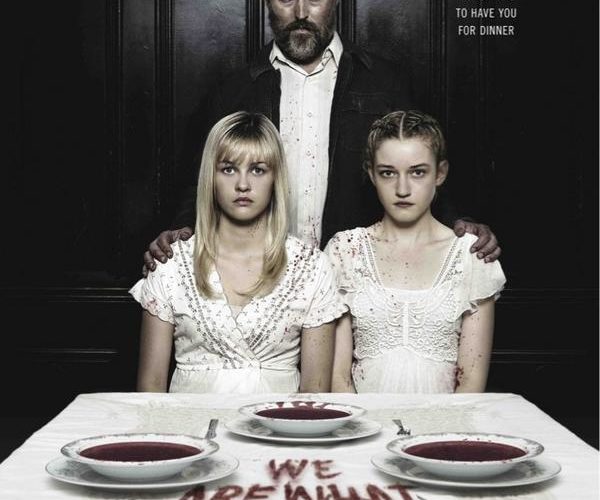Writer/Director Jim Mickle is no stranger to indie horror films, having had a fairly successful run with his 2010 vampire thriller Stakeland. That same year, another independent horror film, We Are What We Are, was also playing festivals alongside Stakeland and caught the attention of Mickle, who decided to reinterpret it with his writing partner Nick Damici. Having not seen the original, it’s impossible to comment on the differences between the two, but it is clear that this reinvention works extremely effectively on its own. Stylishly directed and unnerving to its core, Mickle’s We Are What We Are is a prime example of horror done right.
The story revolves around the seemingly wholesome Parker family, who behind closed doors are harboring dark secrets. After an unexpected tragedy changes the dynamics of the family, daughters Iris (Ambyr Childers) and Rose (Julia Garner) are forced to assume new responsibilities to protect their traditions. Their tyrannical patriarch Frank, played with restrained viciousness by character actor Bill Sage, keeps his family prisoner to this unusual tradition. But when a torrential rainstorm threatens to unearth the families secret, Frank will do whatever it takes to protect both his family and his ancestral customs.

Part of what makes the film so effective is its unsettling mood, made more distressing by Mickle’s intense use of sound design and cinematography to heighten tension. As the troubling truth is slowly revealed to the audience, the creepy factor rises up at a consistent and steady pace. It’s also interesting to see how the dynamics of such a messed up family play out in the context of an almost cult like structure. There are definitely some eerie undertones reminiscent to the 2011 Sundance film Martha Marcy May Marlene, which Julia Garner was a supporting actress in. The suspense builds into a palpable nail biting climax that will leave audiences disturbed and without much of an appetite.
Its rare these days to find a horror film that works on multiple levels and doesn’t feel overly cliché, so for that reason alone We Are What We Are is a welcome addition to the genre. The performances are rock solid and the direction is tight throughout, making each moment creepier than the next. There are also some interesting choices made in respect to religion, serving as allegory for the deep rooted traditions that unravels the family. The one minor complaint is there are a few awkwardly written scenes that feel a bit stilted but it does little to slow down the momentum of relentless foreboding brimming in every carefully composed frame. We Are What We Are is a devilish treat of a film that will leave you hungry for more from director Jim Mickle.


